Stories
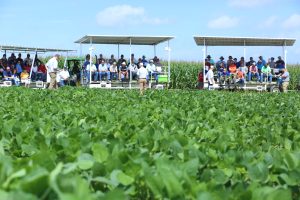
Aug. 30, 2019
An Investment in Agriculture
University of Missouri officials announced today a $6.5 million investment in the Missouri Agricultural Experiment Station of MU’s College of Agriculture, Food and Natural Resources. The investment will enhance the university’s ability to share next-generation agricultural technologies developed by MU researchers with Missouri’s farmers and ranchers. “CAFNR’s world-class animal and plant researchers use these centers to translate research from the laboratory and evaluate its impact under real field conditions,” MU Chancellor Alexander N. Cartwright said. “Because these projects oftentimes include an educational component, our students also use the research centers for essential field studies. Needless to say, these centers are…

Aug. 5, 2019
Drive to Distinction: The First Two Years
Dear Friends of CAFNR: Hard to believe, but it’s two years since my family and I located to Columbia, Missouri. When contemplating the move, I felt drawn to Mizzou and the people of Missouri. Although there have been difficult and challenging days as Vice Chancellor and Dean for the College of Agriculture, Food and Natural Resources, I know the right decision was made, and I am exactly where I am supposed to be and doing exactly what I was intended to do. My days have been full of meaning and purpose, as I know that together we can better our…

June 27, 2019
Throwing New Light on Photosynthesis
In the summer months, Jeff Wood, a biometeorologist in the School of Natural Resources at the University of Missouri, likes to spend his days with his head in the clouds, or at least the canopies of forests. Sometimes starting before dawn and staying until dusk, he uses a 32-meter tall instrument-studded tower at the Missouri Ozark AmeriFlux site (MOFLUX) at the Baskett Wildlife Research and Education Center near Ashland, Missouri, to monitor the “breathing” of the forest. Using tools to measure the flow of carbon dioxide and water from the level of the individual leaf to the entire forest, he…
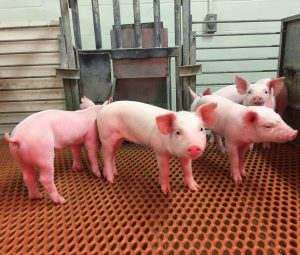
June 26, 2019
Aiding Disease Treatment
The University of Missouri recently announced that researchers in the College of Agriculture, Food and Natural Resources have received an $8.6 million grant from the National Institutes of Health to establish a new national research center. The Swine Somatic Cell Genome Editing Center will focus on aiding the development of biomedical treatments for human diseases such as cystic fibrosis. The center will be tasked with creating protocols to evaluate the safety and efficacy of reagents, which are the tools researchers use to edit and repair disease-related genes. In supporting the translation of swine research into treatments for human diseases, the center’s mission…
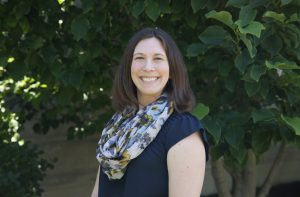
June 25, 2019
‘Sharing CAFNR’s Message’
Michelle Enger was recently named director for the CAFNR Office of Marketing and Communications. Enger has been the marketing communications coordinator in the same office since 2011. Her new role as director is effective July 1, 2019. “I am confident Michelle will serve CAFNR well in this important role for our College,” said CAFNR Vice Chancellor and Dean Christopher Daubert. “Michelle has spent the majority of her career in communications at land-grant institutions, and she has a deep knowledge of our College, its programs and partners. Michelle is the perfect choice to help share the great stories coming from CAFNR.”…
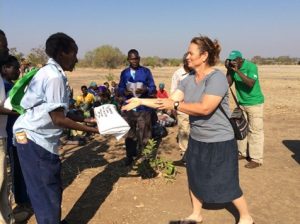
June 21, 2019
A Lifetime of International Work
Kerry Clark, assistant research professor in the Division of Applied Social Sciences (DASS) and project manager for smallholder productivity for the USAID Soybean Innovation Lab (SIL), has been named director of CAFNR International Programs, effective Aug. 1, 2019. Clark has worked internationally throughout her career. Through the USAID Soybean Innovation Lab, she works with a multidisciplinary team to bridge seed quality and sociological research for development in Ghana and Mozambique. She worked for 15 years with Costa Rica Seeds advancing University of Missouri soybean lines in a winter nursery in Upala, Costa Rica. Since 2016, Clark has been developing and…
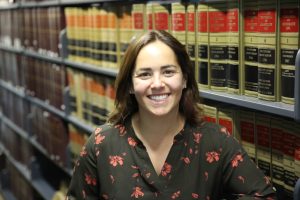
June 14, 2019
Preparing Students for the Workforce
Robin Rotman has taken a unique path to becoming an assistant professor at the University of Missouri. She joined the School of Natural Resources after 10 years of practicing law; first at the Missouri Department of Natural Resources and more recently in private practice in Washington, D.C. Rotman holds a bachelor’s degree from Sewanee: The University of the South, a master’s degree from the University of Oxford, where she was a Rhodes Scholar, and a Juris Doctor from Yale Law School. Throughout her entire career, Rotman has worked on issues related to energy, the environment and natural resources, which continue…

June 12, 2019
A Life of Service and Innovation
Robert J. Jones, chancellor of the University of Illinois at Urbana-Champaign, has an inspiring list of professional accomplishments over his years in higher education, first as a researcher and teacher, and now as a leader. Robert J. Jones is pictured with family in December 2018 when he returned to Mizzou to receive an honorary degree. From left to right: Clifford Browner, brother-in-law; Glenndale Williams, son-in-law; Taara Hassan Williams, daughter; Lynn Hassan Jones, wife; Jones; and Mary Alice Browner, sister. Still, he says the achievement of receiving an honorary degree from the University of Missouri last December was near the top…
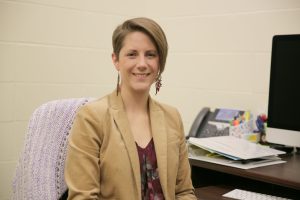
May 10, 2019
A Combination of Research
Last year, Amanda Patterson was looking for a place where she could combine her reproductive research interests in animals and her stem cell research interests in women. She found the perfect opportunity at the University of Missouri. Patterson joined the Division of Animal Sciences in November 2018 as an assistant professor. She also has a joint appointment in Obstetrics, Gynecology and Women’s Health with the MU School of Medicine. Patterson’s research is focused on understanding how the uterus is repaired after pregnancy, in both animals and women. “During pregnancy, there is a dramatic remodeling, growth and change that happens within…

May 2, 2019
From Farm Kid to Executive
It was 1979 when Missouri farm kid Brett Begemann anxiously started his freshman year at Mizzou. Growing up on his family’s farm near Mayview, Missouri, Begemann came to MU with the intention of returning to the farm. He described himself as “just a farm kid back then” and remembers thinking how big the city of Columbia was, which led him to wonder how he would ever make it in such a big city. Little did he know that he would see much bigger cities in his future. Due to a drought, Begemann didn’t return the family farm after graduating from…